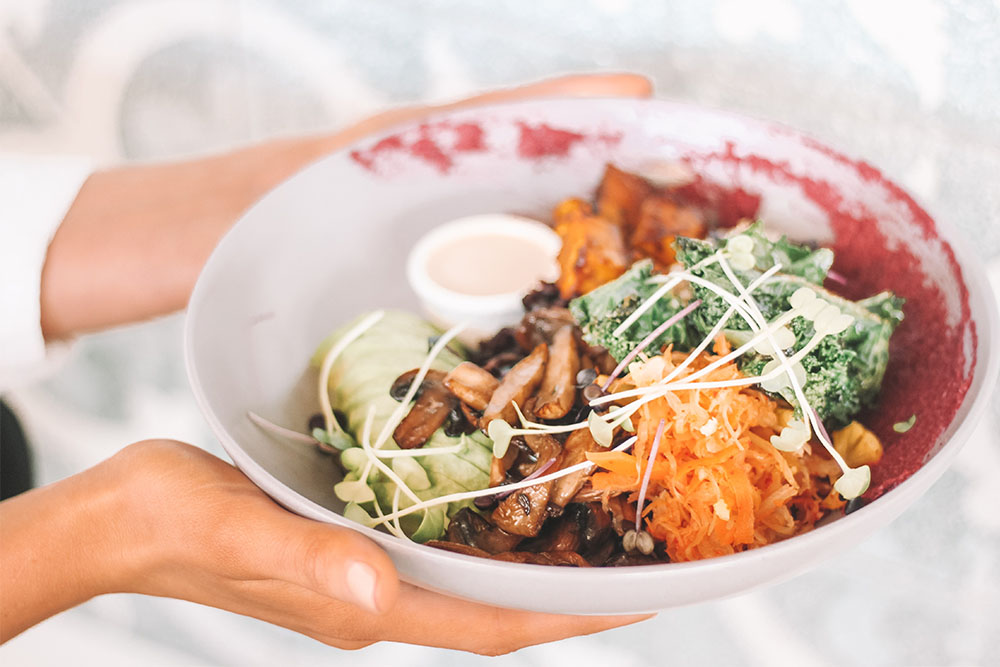3 Important Things Athletes Should Consider Before Going Vegan

Alyssa Bialowas
The vegan diet is becoming increasingly popular among the general population and is gaining momentum among athletes as well. While traditionally athlete diets have been rich in meat and animal byproducts such as eggs and milk, veganism turns the omnivorous athlete diet on its head. Veganism is a way of living that eliminates all cruelty and exploitation of animals, including the consumption of them. The vegan diet is completely plant-based and devoid of all animal products including meat, eggs, and dairy. Due to this, the vegan diet can create challenges in designing a nutritious diet, especially when it comes to getting enough energy and protein (Rogerson, 2017). So, is the vegan diet suitable for athletes? Here are 3 things to consider about going vegan as an athlete.
1. A Vegan Diet Requires You to be Strategic
Since the vegan diet cuts out key sources of protein, such as meats and eggs, there has been a concern as to whether it’s suitable for athletes, who require a diet high in protein and calories. Vegan diets tend to be lower in calories, protein, fat, vitamin B12, calcium and iodine than omnivorous diets, however, with strategic selection of food choices and appropriate supplementation, it has been found that a vegan diet can achieve the needs of most athletes (Rogerson, 2017).
A study in France found that self-reported vegetarians and vegans had a higher intake of plant-based, protein-dense foods like cereals, soy products and other meat substitutes such as vegetarian patties, and soy, almond and rice milk (Alles et al. 2017). This goes to show that it’s up to you to ensure you’re consuming the correct amount and types of nutrients on the vegan diet.
Related Article: The Ever Changing Science of Protein
2. The Vegan Diet Helps Gut Health
 Gut health (the health of your gastrointestinal system) is key to overall health and can elevate athletic performance. On the flipside, distress of your gastrointestinal system can be detrimental to your performance and body. Glick-Bauer and Yeh (2014) state that the vegan gut profile has a reduced abundance of pathobionts (disease-causing organisms) and a greater abundance of protective species.
Gut health (the health of your gastrointestinal system) is key to overall health and can elevate athletic performance. On the flipside, distress of your gastrointestinal system can be detrimental to your performance and body. Glick-Bauer and Yeh (2014) state that the vegan gut profile has a reduced abundance of pathobionts (disease-causing organisms) and a greater abundance of protective species.
Those on the vegan diet have also been found to have higher antioxidants and lower inflammation in their body due to an increase in fruit, vegetable and fiber intake, and a reduction in saturated fat and caloric intake (Glick-Bauer and Yeh, 2014). Lower levels of inflammation could be the key feature linking gut microbiota with protective health benefits, however, the authors note that the role of dietary fiber in reducing inflammation should be studied further (Glick-Bauer and Yeh, 2014).
Related Article: Exercise Your Gut (Microbiome)
3. A Vegan Diet Could Lessen Your Chance of Disease
A study by Le and Sabate (2014) found that vegans have a lower risk for some diseases such as heart disease and cardiovascular disease mortality due to their significantly lower mean body mass index. Nutrient profiles of the vegetarian dietary patterns may explain the reduction in cardiovascular risks (Le and Sabate, 2014).
Dietary fibers, folate, antioxidants, and phytochemicals rich in fruits and vegetables, whole grains, soy, and nuts are associated with low level of serum cholesterol, lower trans/saturated fat, lower incidence of diabetes, cardiovascular disease, and specific cancers, and lower mortality incidence from stroke and heart disease (Le and Sabate, 2014). The healthier your body is, the better you are able to perform, and the vegan diet has been found to have great health benefits overall.
You Might Like:
Walking After Eating: An Effective Way to Manage Blood Sugar
Over the last few years, Type II diabetes has become one of the biggest health concerns on the planet. Typified by an inability to correctly manage your blood sugar levels, it can have deleterious health...What Is the Hype About Antinutrients and Are They Harmful?
Ask and they will agree that fruits and vegetables are some of the healthiest foods on the planet – and for the most part, they would be right. They are full of vitamins and minerals,...The World’s Most Powerful Antioxidant: Glutathione
Over the last couple of years Glutathione has made a bit of splash in the supplement industry, where it has been touted as one of the most powerful products to hit the market in years....BCAAs (branched-chain amino acids): What You Need to Know
There are thousands of different supplements available for your consumption – all of which promise the world (many of which, unfortunately, fail to deliver on that promise). One supplement that has become a mainstay in...Intermittent Fasting and Running
Intermittent fasting has quickly become one of the most popular dietary strategies of the decade. Over the last few years, it has evolved from a niche topic into something that everyone is doing. And with...3 Vitamins to Boost Your Immune System Now
Given the impact that coronavirus is having on our society, I thought it would be a great time to provide some useful information that can have a positive effect on your immune system. And no,...References
Alles, B., Baudry, J., Mejean, C., Touvier, M., Peneau, S., Hercberg, S., and Kesse-Guyot, E. 2017. “Comparison of Sociodemographic and Nutritional Characteristics between Self-Reported Vegetarians, Vegans, and Meat-Eaters from the NutriNet-Santé Study.” Nutrients, 9 (9): 1023.
Glick-Bauer, M., and Yeh, M. (2014). The Health Advantage of a Vegan Diet: Exploring the Gut Microbiota Connection. Nutrients, 6 (11): 4822-4838.
Le, T.P., Sabate, J. (2014). Beyond Meatless, the Health Effects of Vegan Diets: Findings from the Adventist Cohorts. Nutrients, 6 (6): 2131-2147.
Rogerson, David. 2017. “Vegan Diet: Practical Advice for Athletes and Exercisers.” Journal of the International Society of Sports Nutrition, 14: 36.













